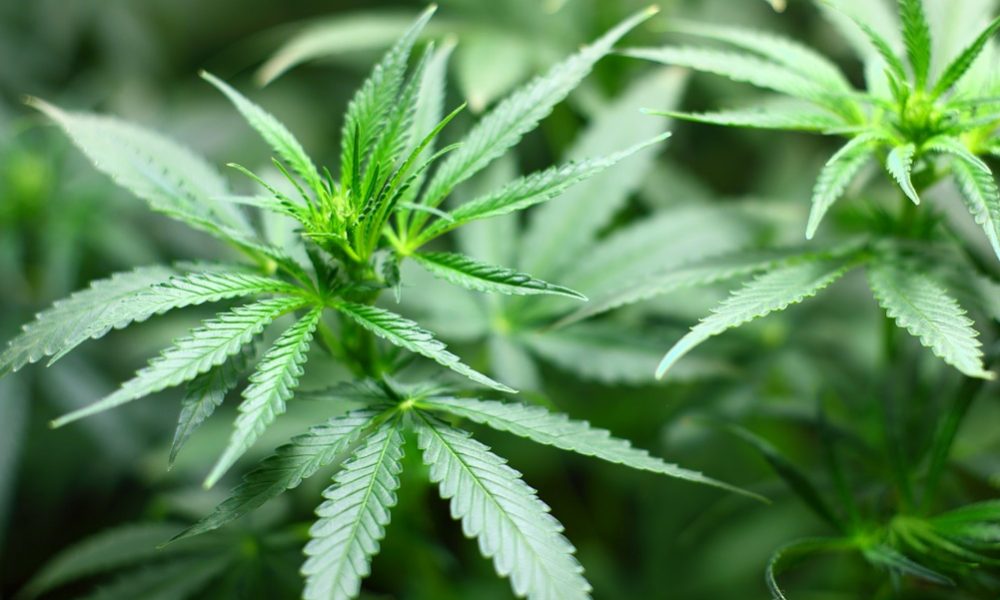A South Carolina bill to permit the use of investigational drugs for patients during epidemic or pandemic outbreaks was amended on Wednesday to specifically add marijuana as a treatment option.
This comes about a month after the state Senate approved a separate, broader medical cannabis legalization bill that’s set to be taken up by the House of Representatives.
The Health and Environmental Affairs Subcommittee of the House Medical, Military, Public and Municipal Affairs Committee held a hearing on the investigational drug bill from Rep. Melissa Lackey Oremus (R) on Wednesday. And while time constraints meant that members were not able to vote on the overall proposal, they did adopt an amendment from Rep. Krystle Matthews (D) that would add medical cannabis to the list of investigational treatment options that would be authorized under the broader legislation.
Marijuana wasn’t specifically included in the original bill, which is designed to give doctors the ability to treat patients with substances that are not currently approved by the federal Food and Drug Administration (FDA) like ivermectin and hydroxychloroquine in the event of an epidemic or pandemic declaration.
“I actually don’t have a problem with people want to put other things in their bodies that may or may not be good for them if their doctors are saying that it may work,” Matthews said at the subcommittee hearing. “I do think there are other medicines—but that, again, keeps running my mind back to medicinal marijuana.”
“Marijuana has over the years helped so many people and yet this state House has held it up because of all these frivolous issues with it not being researched and not being tested—and yet here we have a bill in our hand. I’m irritated because we have a bill in our hands that says, ‘Oh now we want to be able to use something else even if it’s not been approved.”
The subcommittee members ultimately accepted the medical cannabis addition. The revised bill is expected to move to the full committee for consideration, and it’s the only panel in the Republican-controlled chamber that’s chaired by a Democrat, with a majority of Democratic members.
—
Marijuana Moment is already tracking more than 1,000 cannabis, psychedelics and drug policy bills in state legislatures and Congress this year. Patreon supporters pledging at least $25/month get access to our interactive maps, charts and hearing calendar so they don’t miss any developments.![]()
Learn more about our marijuana bill tracker and become a supporter on Patreon to get access.
—
Advocates are pursuing broader reform in the South Carolina legislature this session, however.
A more targeted bill to legalize medical cannabis in the state officially passed the Senate on third reading last month, sending it to the House.
The Compassionate Care Act was prefiled in late 2020 and passed out of the Senate Medical Affairs Committee last March, but a lone senator blocked it from reaching the chamber floor in 2021. Since then, the Davis redoubled his efforts to get the bill across the finish line, arguing that South Carolina voters are ready what he’s repeatedly called “the most conservative medical cannabis bill in the country.”.
The senator said last month that House Speaker Jay Lucas (R) agreed to “allow the bill to go through the House process” if it advanced through the Senate, but a spokesperson for the speaker later told The Charleston Post and Courier that “Sen. Davis doesn’t speak for Speaker Lucas.”
Gov. Henry McMaster (R) said last month that it was too early to comment on the proposal, as changes were still being made by lawmakers. “This is one that’s going to depend on a lot of things,” he told a local FOX station, adding that he’ll wait to see the final version before deciding whether he would potentially sign or veto the bill if if were to arrive on his desk.
As amended and passed in the Senate, S. 150 would allow patients with qualifying conditions to possess and purchase cannabis products from licensed dispensaries. Smokable products, as well as home cultivation of cannabis by patients or their caretakers, would be prohibited. Simply possessing the plant form of cannabis could be punished as a misdemeanor.
Qualifying conditions for medical cannabis include cancer, multiple sclerosis, epilepsy, glaucoma, Crohn’s disease, sickle cell anemia, ulcerative colitis, cachexia or wasting syndrome, autism, nausea in homebound or end-of-life patients, muscle spasms, post-traumatic stress disorder (PTSD). Terminal patients with less than a year to live would also qualify. However, regulators would be authorized to add additional conditions in the future.
The bill would also allow access among patients with “any chronic or debilitating disease or medical condition for which an opioid is currently or could be prescribed by a physician based on generally accepted standards of care,” for example severe or persistent pain.
Medical marijuana would be subject to the state’s six percent sales tax, and local jurisdictions would be able to levy an additional tax.
Rather than have conventional medical marijuana dispensaries that are in place in other legal states, the bill stipulates that there would be so-called cannabis pharmacies. The facilities would be required to have a pharmacist on site at all times, and the South Carolina Board of Pharmacy would promulgate business regulations.
People with felony-level drug convictions would also be prevented from participating in the new industry for a period of 10 years under the proposal.
In-state businesses would also receive licensing priority when the market in established, with the intent being to prevent multi-state operators from dominating the industry.
Under the bill, 75 percent of tax revenue after expenditures would go to the state’s general fund, with another 10 percent going to drug use disorder treatment service providers, five percent going to state law enforcement, and the remainder going to cannabis research and drug education.
For the initial rollout, regulators would approve 15 cannabis cultivators, 30 processing facilities, a cannabis pharmacy for every 20 pharmacies in the state, five testing laboratories and four cannabis transporters. Lawmakers, rather than regulators, would be authorized to approve additional license types.
Local governments could ban medical cannabis businesses from operating in their jurisdictions under the amended bill, but otherwise the it says that local land use and zoning burdens “should be no greater for a cannabis-based business than for any other similar business.”
The state Department of Health and Environmental Control would oversee licensing and other regulations of the new industry. A newly established Medical Cannabis Advisory Board would be in charge of adding or removing qualifying conditions. The board would meet at least once per year and be led by a governor-appointed chairperson.
Davis has championed medical marijuana in South Carolina since 2014, and at recent rally, he brought out a binder that he said contained eight years of research into the issue. He said he would use the information to “take on every single argument that has been raised in opposition to this bill, and I’m going to show that they cannot stand in the way of facts and evidence.”
He’s also continued to push back against opposition to cannabis legalization from his own party, for example calling out an attack ad that was paid for by the South Carolina Republican Party.
The state GOP organization separately slammed a federal legalization bill from U.S. Rep. Nancy Mace, a Republican who represents South Carolina in Congress. And in January, cannabis opponents sent a mailer accusing Davis of wanting to turn the state into “one big pot party.”
A former White House chief of staff under President Donald Trump also recently called out his home state South Carolina Republican Party for opposing the medical marijuana bill medical marijuana. Mick Mulvaney, Trump’s top aide for more than a year and a former congressman, called the legislation “something that merits discussion and reasoned analysis,” even if it’s not a proposal that is conventionally considered a conservative priority.
Davis referred to the maneuvers by his own party as “the elephant in the room” on the Senate floor as debate on the floor kicked off in January, saying he was offended by the misinformation and planned to rebut every misleading claim the group made.
A poll released last February found that South Carolina voters support legalizing medical marijuana by a five-to-one ratio. But the state does not have a citizen-led initiative process that has empowered voters in other states to get the policy change enacted.
Support for medical marijuana legalization among South Carolina residents has been notably stable, as a 2018 Benchmark Research poll similarly found 72 percent support for the reform, including nearly two-thirds (63 percent) of Republicans. Davis said last year that if the legislature didn’t advance the reform, he’d propose a bill to put the question of medical marijuana legalization to voters through a referendum.
Also in 2018, 82 percent of voters in the state’s Democratic primary election voted in favor of medical cannabis legalization in a nonbinding ballot advisory vote.
Lawmakers prefiled four marijuana measures for the 2019 session, but they did not advance.
Medical Disclaimer:
The information provided in these blog posts is intended for general informational and educational purposes only. It is not a substitute for professional medical advice, diagnosis, or treatment. Always seek the advice of your physician or other qualified healthcare provider with any questions you may have regarding a medical condition. The use of any information provided in these blog posts is solely at your own risk. The authors and the website do not recommend or endorse any specific products, treatments, or procedures mentioned. Reliance on any information in these blog posts is solely at your own discretion.







